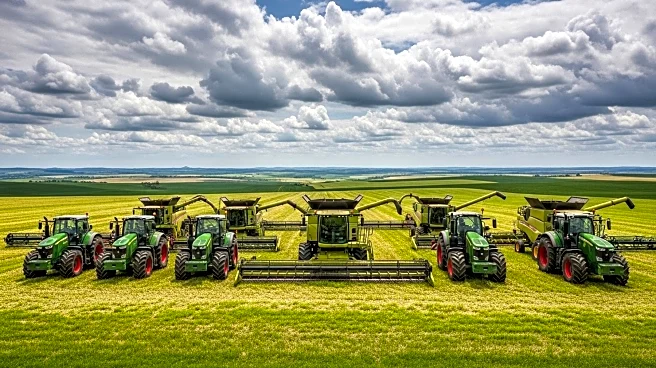What is the story about?
What's Happening?
China's Ministry of Agriculture and Rural Affairs has implemented emergency measures to secure the autumn grain harvest in key regions affected by persistent rains. The ministry has dispatched 244,300 tracked harvesters and 1,986 mobile dryers to provinces such as Henan, Shandong, and Anhui, where harvest progress has been significantly slowed. A dedicated team is coordinating machinery dispatch and providing technical support to ensure the harvest is completed successfully.
Why It's Important?
The emergency response highlights the critical role of agricultural infrastructure in maintaining food security amid adverse weather conditions. China's proactive measures to secure the grain harvest are essential for sustaining its agricultural output and preventing potential food shortages. The deployment of machinery underscores the importance of technological advancements in agriculture, which can mitigate the impacts of climate change and ensure stable food supplies. The situation also reflects broader challenges faced by global agriculture in adapting to environmental disruptions.
What's Next?
The ministry plans to continue coordinating with affected provinces to adjust machinery deployment based on evolving conditions. As the situation develops, further measures may be implemented to support farmers and protect the grain harvest. The experience could lead to increased investment in agricultural technology and infrastructure, enhancing China's capacity to respond to future climate-related challenges. The government may also explore policy adjustments to strengthen food security and resilience.
Beyond the Headlines
China's response to the harvest challenges illustrates the interconnectedness of climate change and food security. The situation emphasizes the need for comprehensive strategies that integrate technological solutions with sustainable agricultural practices. By addressing immediate threats and planning for long-term resilience, China can contribute to global efforts in combating climate change and ensuring food security.















